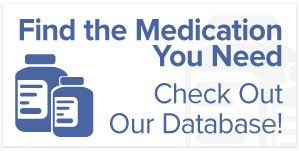Loose and watery bowel movements are more common than you think. However, when accompanied by more serious symptoms such as vomiting and nausea, they may call for attention. Diarrheal diseases are usually short-lived and can be treated with oral rehydration solution. However, managing diarrheal symptoms can sometimes require more intensive care.
How to Manage Diarrheal Diseases

Did you know that about 2 billion cases of diarrheal disease occur every year? Around 1.9 million of these consist of children under the age of 5.
While mild cases tend to resolve on their own, persistent diarrhea may require an analysis of underlying symptoms. Here are some ways you can revive your health before it declines to a serious degree.
Rehydrate
Persistent watery stools can scrape a number of essential nutrients from your body. In some cases, it may result in serious dehydration.
Rehydration is not only vital but necessary. Oral rehydration salts can significantly help your body regain those essential nutrients. If not, the patient may require intravenous fluids.
Modify Your Diet
Diarrheal diseases tend to get worse if they aren’t controlled or managed in time. Apart from rehydrating your body, you may also want to modify your dietary intake and routine in the following ways:
- Consume liquids and foods with high potassium
- Consume foods such as oatmeal, banana, and rice, since they’re high in soluble fibers
- Avoid caffeinated drinks
- Avoid foods that make diarrhea worse, such as sugars, cream, and fried items.
- Avoid dairy products
Get Antidiarrheal Medication (After a Clinical Assessment of the Symptoms)
Over-the-counter medications such as bismuth subsalicylate (Pepto-Bismol) and loperamide (Imodium) can help reduce stool passage. Some people also use it to prevent traveler’s diarrhea.
However, without a proper evaluation of your symptoms, over-the-counter medications may not be able to do much. If the diarrhea is due to bacterial infections, your healthcare professional may prescribe antibiotics.
Practice Prevention
While managing diarrheal symptoms is possible, it’s better to avoid the onset completely. Whether you’re someone who travels frequently or has trouble with bowel movements, here are some ways to avoid diarrhea:
- Make sure to only eat food that is completely and freshly cooked and served hot.
- Pre-packaged food is a safe bet unless it’s expired.
- Do not eat fruits or vegetables that aren’t cooked or cannot be peeled.
- If you’re considering traveling, you may want to obtain your typhoid and hepatitis A vaccinations beforehand.
Final Word
All in all, acute diarrhea tends to clear on its own and doesn’t require serious intervention. However, more persistent diarrheal diseases may require more than just dietary modifications and lifestyle changes. Based on your healthcare professional’s recommendation, you may require purchasing antibiotics for complete relief.
If you’re concerned about the cost of medication, particularly due to your uninsured status, now should be a good time to look into prescription assistance programs. At The Rx Helper, we help patients receive all the medication they need as long as they have a prescription and are eligible to enroll. Contact us now to learn about your enrollment options!



